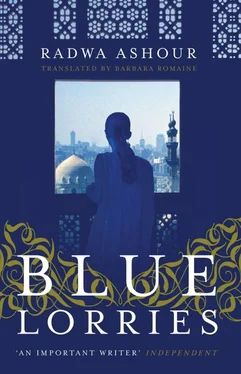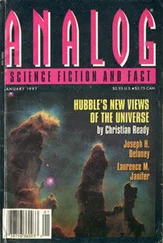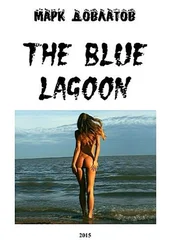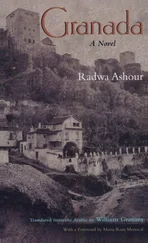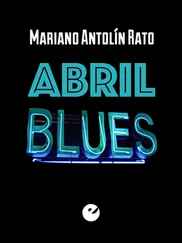They were big vehicles, of a hue that was nothing like either sky-blue or sea-blue, but the raw blue of cheap paint to which dust had clung until it became part of it. Perhaps the surface had been repainted over and over, without being cleaned or sanded first, so that the last layer of colour went on muddy and uneven. The driver and the one or two men beside him were all from the rank and file of the police force. Behind them would be the big iron box, with a door at the rear and a set of steps between that and the street. The door would be locked with a large deadbolt and sometimes a padlock in addition to that. In rare cases a couple of boys would be standing there — boys from the countryside in uniforms that were filthy, albeit official — as auxiliary security guards. On either side of the box, in the upper third portion, were four small openings close together, presumably windows, with iron bars or instead of bars some thick metal grillwork that would restrict the airflow for whoever was inside the box and limit the visibility of those behind these openings, keeping them that much more tightly in bonds.
They were called ‘transport lorries’, for they were used to convey those who had been arrested from one place to another — from the police department, for example, or from the public prosecutor’s office to the courtroom and from there to prison.
When I followed one of these vehicles my first concern was to find out whether there were people in the box, and whether they were pressing their faces to the metal grillwork seeking a breath of air or a beam of light or some hope in the sight of a face or a tree or a school door opening suddenly for a group of children.
Having got close enough, I liked to stop my car altogether, so that the necessity of watching the road would not prevent me from staring at those windows secured with grillwork, where I might see a face, or intercept a glance or a smile. Then the urgent honk of a car horn would compel me to avert my gaze, to discover that I was on the point of colliding with the car ahead of me, or that my car was rolling backward and about to hit the one behind me.
I rarely succeeded in overtaking a transport lorry. The two or three times I was lucky, I imagined that I saw a face behind the opening, and I looked intently at it. It seemed to me that it stared at me as well. I would smile. After that, I would have no chance, because of the need to concentrate on the road, to see any response to my smile; then the vehicle would move off, and I would continue on my way.
It didn’t occur to me, when I thought about this new mania that had beset me, that it was a premonition, and that my heart was anticipating what was to happen. I thought my new mania was some residue of the past, that perhaps unconsciously I was remembering my father, and following paths he might have travelled.
It didn’t occur to me that the lorry was the harbinger of an evil event. Maybe I came close to thinking along these lines, and then reconsidered, wondering, ‘How could this be a bad omen, when the only thing that’s new is that I’m the one who’s taken to following the lorries? There’s no omen here, no basis for foreboding or dread. It’s odd behaviour, but, whatever obscure impulses it may suggest, it’s just another of my passing obsessions, nothing more.’
No more friends of mine died on New Year’s Eve, nor did I see a crow making auguries toward the College of Engineering. Nothing out of the ordinary occurred. That is to say, I spent the night in front of the computer, and then, at a polite quarter of an hour before midnight, I moved to the sitting room, where Hamdiya was watching television, and sat down with her. When the clock struck twelve, announcing the end of the year 2002, I said to her, ‘Happy New Year, Hamdiya,’ and kissed her. She kissed me back, and said, ‘Happy New Year.’ Then the phone rang, and it was Nadir ringing us from Dubai; this was followed by another call, from Nadeem, who was spending the evening with his friends.
‘What would you say to a cup of mint tea, Hamdiya?’
‘What an excellent idea!’
I made tea and arranged some pieces of cake on a plate with two sprigs of fresh mint and then on the side I added a handful of almonds and raisins. The plate looked pretty — smiling, I brought the tray to Hamdiya and placed it before her. ‘Chef Nada,’ I said, ‘wishes you a nice night and a happy year!’
Hamdiya laughed and replied, ‘You really have style, Nada!’
‘A little treat on New Year’s Eve!’
We drank our tea and ate the sweets, and it seemed as though the new year, like our shared company that night, would be calm, routine, perhaps pleasant.
That is not what happened.
The first two months of the new year brought cares and troubles that were only the preamble, the dry-run, for what the third month would bring.
Nadeem said that he was going to move to Dubai to work. Despite the care he took over completing his paperwork, and even though he received a travel visa for the Emirates and signed a contract with the same firm for which his brother worked, he didn’t seem happy. He didn’t express whatever was going on inside his head, although it was not difficult for me to read the look in his eyes. His decision to travel meant that he had to accept the way things were and resign himself to them. He wanted to study architecture, and he did; he applied himself seriously and conscientiously to his studies, acquiring knowledge that pleased him, and the door of his imagination had opened on to a dream he must now relinquish — raise a white flag before the age of thirty, and admit, ‘I give up.’
In the background beat the drums of war, another war, bigger than all the rest. We followed the Security Council debates, and the unfolding scenarios of imminent conflict. ‘They’re going to attack Iraq,’ Nadeem said, while I clung to the possibility that it was just scare tactics, an attempt at verbal terrorism. The memory of the previous war was as present as if more than ten years hadn’t elapsed since then, the first war that the boys had been old enough to pay attention to. In 1982 they had been little, more preoccupied with football games, the cartoons on television, a half-point more or less on a test at school, or a goal scored in a game in which a girls’ team had defeated the boys. On that day I confined myself to telling them that Israel, which had attacked us in 1956 and 1967, was attacking Lebanon. I wouldn’t have approved of their watching the news broadcasts with me, and when the occupation forces moved into Beirut, with the ensuing massacre, I summarised what had occurred in an expurgated statement: ‘The Israelis have been behind the killing of a great many people — when you’re a little older, you’ll learn how terrible Israel is.’ I concealed from them, though, the videotape I had acquired, about the massacres at Sabra and Shatila — images of bloated corpses and flies. I also concealed the elaborate tale of the Phalangists and the Lebanese forces that had perpetrated the slaughter as Israel’s proxies. I thought, ‘Two little boys not eight years old — why poison their imaginations with images of bloodshed, the complicated relationship between invading forces supported by locals, and a resistance supported by part of the populace, while the other part wants to crush it?’
But on the day of the first attack on Baghdad, in 1991, they were in high school, and they followed the reports on television, read the daily newspapers, and discussed the course of events with their schoolmates, agreeing or disputing.
This war now looming over Iraq would be Nadir and Nadeem’s second war, and the second one to affect their lives.
Four days before the war began, there was a telephone call from one of my former classmates. ‘Siham died,’ the caller said.
Читать дальше
